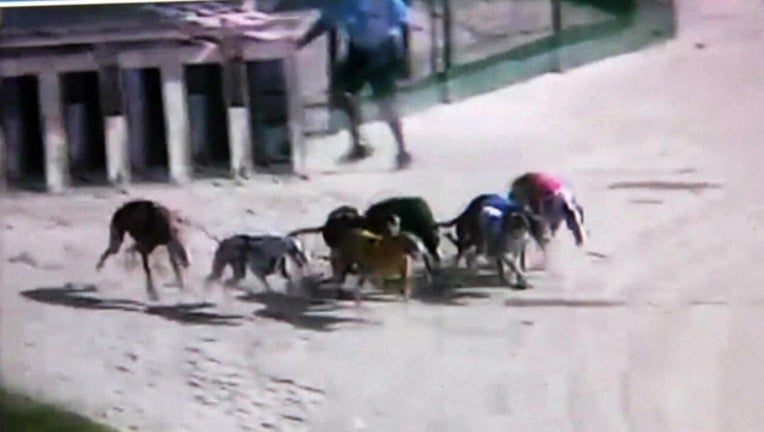Fla. Supreme Court to take up greyhound racing ban

File image
TALLAHASSEE (NSF) - Just a day after receiving the case, the Florida Supreme Court on Tuesday unanimously agreed to take up a battle about whether a proposed ban on greyhound racing should go on the November ballot.
Justices scheduled arguments in the case on Aug. 29 and set a rapid-fire series of deadlines for the parties to file briefs, according to an order issued by the court. The court is moving quickly, at least in part, because ballots for the Nov. 6 general election will start going out in September.
The Florida Constitution Revision Commission this spring approved placing the proposed racing ban on the ballot. The measure, one of eight proposed constitutional amendments approved by the commission, would ban commercial greyhound racing in the state after Dec. 31, 2020.
But the Florida Greyhound Association, which represents breeders, owners and trainers, filed a lawsuit arguing that the proposal, known as Amendment 13, should be kept off the ballot because it would be misleading to voters. Leon County Circuit Judge Karen Gievers last week agreed with the greyhound association, prompting the state to appeal.
On Tuesday, a three-judge panel of the 1st District Court of Appeal agreed to “certify” the case to the Supreme Court, a somewhat unusual move that effectively means the case will bypass the appellate court.
In the decision, appeals-court judges Joseph Lewis, Scott Makar and M. Kemmerly Thomas said it was proper to certify the case to the Supreme Court, in part, because “the issues presented are of great public importance, arising from a proposal of the Florida Constitution Revision Commission to amend the state Constitution … (and because) a need for immediate resolution exists due to time constraints related to the pending election and ballot preparation timelines.”
Arguments at the Supreme Court will focus on the wording of the proposed ballot title and summary, which is what voters would see when they go to the polls. The title and summary are supposed to accurately reflect the meaning of the amendment.
But Gievers’ ruled the proposed racing ban “is misleading and inaccurate and incomplete” and described it as “trickeration.”
As an example, Gievers agreed with an argument by the Florida Greyhound Association that the ballot proposal would be misleading because it would not actually ban dog-race wagering. That is because betting would still be allowed at Florida tracks on races broadcast from outside the state.
“The ballot title and summary are misleading because they imply that passage of proposed Amendment 13 ‘ends dog racing’ and ends wagering on the outcome of dog races, neither of which would be accomplished by proposed Amendment 13,” Gievers wrote.
But in a document filed last month in circuit court, attorneys for the state disputed arguments that the phrase “ends dog racing” in the ballot title would mislead voters.
“Plaintiffs’ isolated focus on a phrase excerpted from the ballot title wrongly ignores the rest of the ballot language and wrongly assumes an ignorant electorate,’’ the state’s attorneys wrote.

